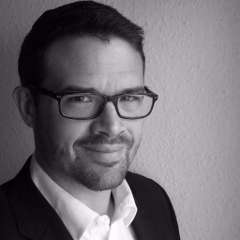This new production of Macbeth hardly represents an encouraging statement from the Berlin Staatsoper about where the future of opera lies. The director and singer of the title role are, according to official dates, respectively 82 and 77. Daniel Barenboim, on the podium for his second new Verdi production of the season, is a relative stripling at 75.
That singer of the title role, of course, is Plácido Domingo. And, all things considered, he can still do some pretty remarkable things on an operatic stage. He certainly did so at the second performance of the production’s run. The voice retains striking freshness and power, and he can still command the stage impressively in the moments of highest drama. The fact that it’s fundamentally the wrong sort of voice bothers me, it seems, more than it does others – not least the opera house managements weighing up the need to cast properly and to benefit from the still unrivalled box-office draw of the globe’s greatest former tenor.
But although Domingo made a powerful impression in the big numbers, he seemed a great deal less sure of himself in the intervening moments, in the small details that the director, Harry Kupfer, had tried to introduce between him and his vampy Lady Macbeth, Anna Netrebko. He seemed doddery at the start of the Banquet Scene and his acting elsewhere struck me as stiff and formulaic. The rushed half-stripping and jumping onto one another we got from the royal couple as they sang of “vendetta” at the end of Act 3 were both predictable (the link between sex and violence is hardly a new one in this work) and unconvincing.
In fact, Kupfer’s production had its own fair share of doddery moments. Banquo’s son was able to run off as assassins remained harmlessly rooted to the spot, for example, and his father was ostentatiously finished off with an impractically large implement. That whole scene was played out on a building site – distant urban backdrop, oversized bucket of a digger dangling from on high – while the assassin who informs Macbeth of the deed in the following scene usefully appears in hi-viz: no ignoring health and safety here.
Otherwise Hans Schavernoch’s set switches between scenes by exploiting the Staatsoper’s new stage machinery to shift up and down between a wasteland above and the smart castle – white leather sofas and shiny floor – below. Thomas Reimer’s video provides different backdrops, of varying degrees of effectiveness and relevance. Yan Tax’s costumes are contemporary, and we were very much made aware of the narrative’s roots in war: Kupfer underlines the cyclical nature of such tragedies, of power’s eternal potential to corrupt.
Despite these serious ideas, though, the show’s general tone is inconsistent. Macbeth stumbles in at the start of Act 3 swigging from a bottle and fussed over by a trio of nurses; Netrebko’s Lady M struts around imperiously, all but rolling her eyes and tutting at her husband’s prevaricating and weakness. She’s clearly having a lot of fun with the acting here, but I’m not sure that’s the point. She sings magnificently, though, especially in the rich, dark, chocolate-and-cherries lower range of the voice; the top, occasionally more chalk than flint, was the only area where she seemed to tire.
There was some additional fine singing from Fabio Sartori’s gloriously Italianate Macduff. Kwangchul Youn’s Banquo was resonant and reliable, but he can’t quite spin the sort of line one ideally wants. There was some insecurity among the witches, but the chorus found their feet well in their big scenes. Barenboim’s conducting was on a grand scale, flexible and dramatically alive, as one would expect, but occasionally short on definition. The Staatskapelle played gloriously.




